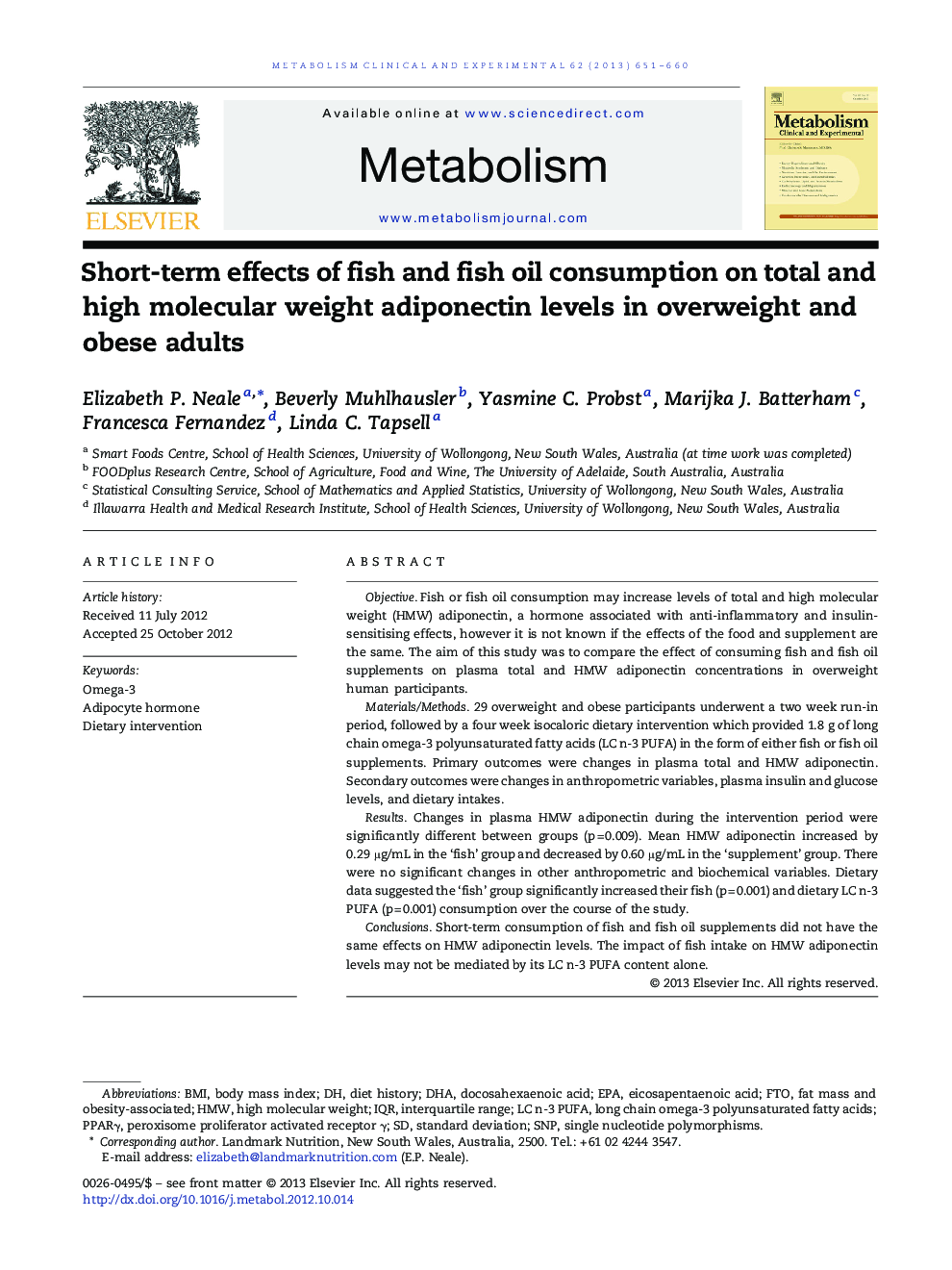| Article ID | Journal | Published Year | Pages | File Type |
|---|---|---|---|---|
| 2805581 | Metabolism | 2013 | 10 Pages |
ObjectiveFish or fish oil consumption may increase levels of total and high molecular weight (HMW) adiponectin, a hormone associated with anti-inflammatory and insulin-sensitising effects, however it is not known if the effects of the food and supplement are the same. The aim of this study was to compare the effect of consuming fish and fish oil supplements on plasma total and HMW adiponectin concentrations in overweight human participants.Materials/Methods29 overweight and obese participants underwent a two week run-in period, followed by a four week isocaloric dietary intervention which provided 1.8 g of long chain omega-3 polyunsaturated fatty acids (LC n-3 PUFA) in the form of either fish or fish oil supplements. Primary outcomes were changes in plasma total and HMW adiponectin. Secondary outcomes were changes in anthropometric variables, plasma insulin and glucose levels, and dietary intakes.ResultsChanges in plasma HMW adiponectin during the intervention period were significantly different between groups (p = 0.009). Mean HMW adiponectin increased by 0.29 μg/mL in the ‘fish’ group and decreased by 0.60 μg/mL in the ‘supplement’ group. There were no significant changes in other anthropometric and biochemical variables. Dietary data suggested the ‘fish’ group significantly increased their fish (p = 0.001) and dietary LC n-3 PUFA (p = 0.001) consumption over the course of the study.ConclusionsShort-term consumption of fish and fish oil supplements did not have the same effects on HMW adiponectin levels. The impact of fish intake on HMW adiponectin levels may not be mediated by its LC n-3 PUFA content alone.
